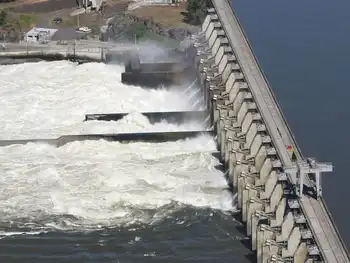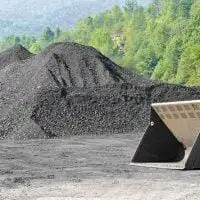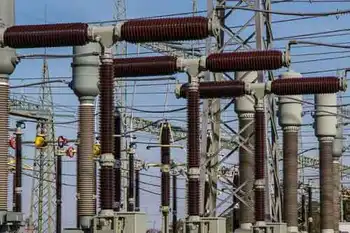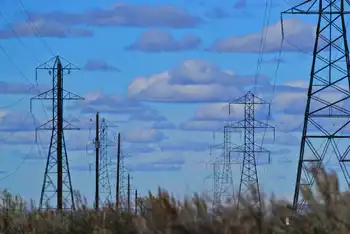India rejects call for emission cuts
"If the question is whether India will take on binding emission reduction commitments, the answer is no. It is morally wrong for us to agree to reduce when 40 percent of Indians do not have access to electricity," said a member of the Indian delegation to the recently concluded U.N. conference in Bonn, Germany, which is a prelude to a Copenhagen summit in December on climate change. "Of course, everybody wants to go solar, but costs are very, very high."
India's position goes to the heart of the vexing international debate over how quickly nations should try to phase out carbon-spewing fuels such as coal and switch to renewable energy sources such as wind and solar. In India, the debate has been cast as a choice between pursuing urgently needed economic growth to reduce poverty and addressing climate change.
More than 60 percent of India's power is generated from coal. As India rapidly climbs the list of global polluters, analysts say coal will continue to fuel the economic demands of the country's 1.1 billion people for two decades. But India has repeatedly said that it will not compromise on growth by committing to emission reduction goals set by developed nations, which it deems bigger culprits when it comes to pollution.
President Obama's promise of a leading U.S. role in combating climate change is a clear departure from the stance of his predecessor, George W. Bush. A climate bill recently introduced by Democrats in the House calls for a 20 percent cut in carbon emissions from 2005 levels by 2020, along with a substantial increase in renewable-energy use.
"I am reasonably optimistic. But it is not entirely upon President Obama. He has to carry the Congress and the Senate with him," said Rajendra K. Pachauri, chairman of the Intergovernmental Panel on Climate Change. He added that India is "very unlikely" to change its official position.
In a policy document released in January, India calls for industrialized countries to commit to significant emission reduction targets while aiding sustainable development in developing nations with funds and technology.
"But it was informally made very clear to us by the developed countries that there will be no money available for developing countries because of the global economic slump," said the Indian delegate to the Bonn meeting. About 2.5 percent of India's gross domestic product is spent on measures to address climate change, including introduction of cleaner technologies, energy-efficient consumer products and renewable energy.
Indian officials say it is unfair to group their country with the major emitters because, per capita, India's emissions are a tenth of those in the United States. Last week, India's special envoy on climate change, Shyam Saran, told reporters in Bonn that he opposed any attempt by the European Union and the United States to impose "carbon tariffs" on exports of Indian goods produced in energy-intensive industries such as steel, aluminum, cement and fertilizer.
Another issue raised was the controversial carbon capture and storage technology, or CCS. The expensive, unproven and environmentally contentious technique is intended to help combat climate change by injecting carbon dioxide emissions into deep underground reservoirs. The United States recently committed money to the technology in its economic stimulus package, and more funding may be proposed in the climate bill expected to be debated later this year. In January, India joined a handful of nations gingerly experimenting with CCS.
Scientists at India's National Geophysical Research Institute released preliminary findings from ongoing government-funded research that seeks to inject carbon dioxide into the basalt rock formation called the Deccan Traps, which is about 60 million years old. S. Nirmal Charan, a senior scientist at the institute, said researchers wanted to determine whether carbon dioxide can be trapped for tens of thousands of years within the basalt. He said more simulated laboratory tests are underway, but initial results show the process to be "environmentally benign."
Critics say it is a gimmick that allows carbon-spewing industries to carry on with business as usual.
"The idea of CCS allows our addiction to coal to remain. It ensures that we keep burning coal," said Chandra Bhushan, associate director of the Center for Science and Environment. "Who will monitor whether there are carbon dioxide leaks from underground storage?"
Norway and Canada have begun implementing various carbon-storage initiatives. Last week, Germany approved a draft law to develop the technology, and China has identified two sites for storage.
India has not formally committed to conducting CCS field experiments. But an official in the Power Ministry said it has the "potential to be an extremely important technology."
"But we are unsure about how it will work," the official said. "Let the world first demonstrate. We will learn from them."
Related News

Salmon and electricity at center of Columbia River treaty negotiations
VANCOUVER - With talks underway between Canada and the U.S. on the future of the Columbia River Treaty, the B.C. New Democrats have launched public consultations in the region most affected by the high-stakes negotiation.
“We want to ensure Columbia basin communities are consulted, kept informed and have their voices heard,” said provincial cabinet minister Katrine Conroy via a press release announcing meetings this month in Castlegar, Golden, Revelstoke, Nakusp, Nelson and other communities.
As well as having cabinet responsibility for the talks, Conroy’s Kootenay West riding includes several places that were inundated under the terms of the 1964 flood control and…





